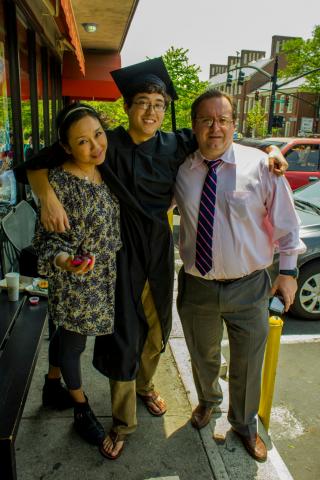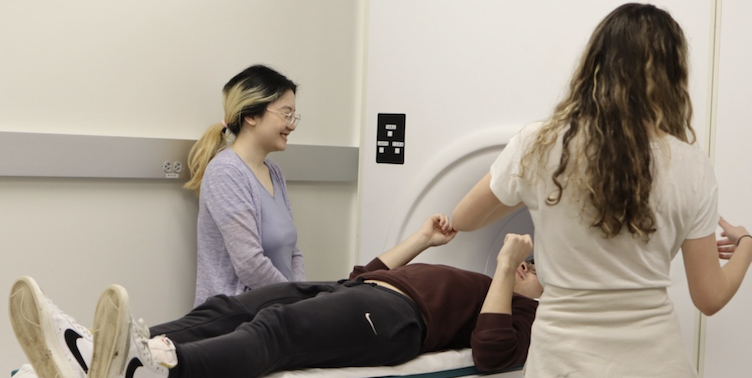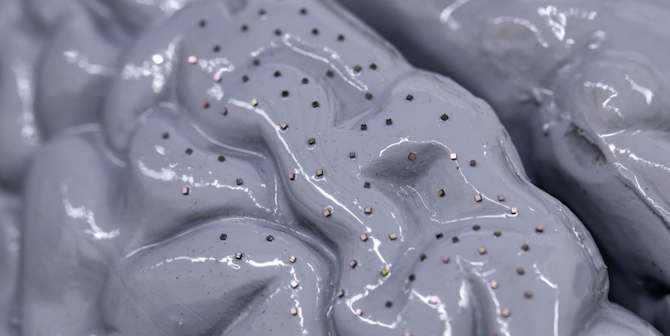Brown alumnus named 2020 Paul & Daisy Soros Fellow

A Brown University alumnus, who is now a medical student, has been named a 2020 Paul & Daisy Soros Fellow. Mark Aurel Nagy will receive up to $90,000 in funding over two years through the program, which honors immigrants and children of immigrants pursuing graduate degrees.
“I heard the news in the middle of a medical simulation session. I was shocked and humbled upon receiving the call, and filled with an overwhelming sense of gratitude to the family, friends and mentors whose support made my joining the incredible community of Paul & Daisy Soros fellows possible,” said Nagy, who received a bachelor’s degree in 2012 with honors in neuroscience and physics. He is the 12th Brown University graduate to receive the fellowship.
The Paul & Daisy Soros Fellowships for New Americans announced on April 14 that this year’s fellowships were awarded to 30 immigrants and children of immigrants who are enrolled in graduate school in the United States. The fellows were selected from a pool of 2,211 applicants from across the country, according to Craig Harwood, director of the Paul & Daisy Soros Fellowships for New Americans.
Nagy was born in Budapest to a Chinese mother and Hungarian father, and he immigrated to the United States soon after. Raised by teachers and scientists, Nagy said he developed a fascination with the sciences early on. At Brown, he found himself drawn to the complexity of the brain. This interest only deepened as he lost his grandmother, who cared for him through much of his childhood, to a neurodegenerative illness. Brown, Nagy said, was a key contributor to his personal growth. The University’s Open Curriculum allowed Nagy to explore his interests in the sciences, he said.
“This commitment to intellectual freedom is what first introduced me to the field of neuroscience, through NEUR0010 with Michael Paradiso,” Nagy said. “The course lectures were fascinating and set the stage for my interest in the field. I’m also grateful to the dedication of Brown’s faculty to student mentorship, and the opportunities the University provided for me to pursue my interests in research.”
During his sophomore year, Nagy sent an out-of-the-blue email to then Brown professor Julie Kauer, who allowed him to join her lab even though he didn’t have hands-on neuroscience experience.
“Julie spent hours teaching me one-on-one how to prepare mouse and rat brain slices for electrophysiological single-neuron recordings, going through each of my traces one at a time to help me assess their quality and become an independent electrophysiologist and scientist,” he said.
Through Brown’s Undergraduate Teaching and Research Awards (UTRAs), Nagy was able to continue his research during the summer. The awards provide financial support for students collaborating with faculty on research and teaching projects. His transformative summer research opportunity led to the publication of a paper in the Journal of Neuroscience.
After graduating from Brown, Nagy enrolled in the M.D./Ph.D. program at Harvard Medical School. His neuroscience Ph.D. dissertation, which led to papers in the journals Nature Neuroscience and Neuron, employed next-generation sequencing-based assays to understand how sensory experience shapes neuronal function. He has been developing a company that leverages approaches created during his Ph.D. to engineer better viral vectors for gene therapy of neurological disorders.
Nagy is currently finishing his M.D. in the Harvard-MIT Health Sciences and Technology program. He hopes to become a practicing physician-scientist dedicated to making lasting improvements to patient care through scientific advancement and, as a gay person of color, increase visibility for underrepresented minorities in the sciences and medicine.
“Brown’s commitment to inclusion and diversity provided me with the supportive and nurturing environment I needed to work up the courage to come out to my friends and family,” he said. “I’ll always be grateful to Brown for that.”



